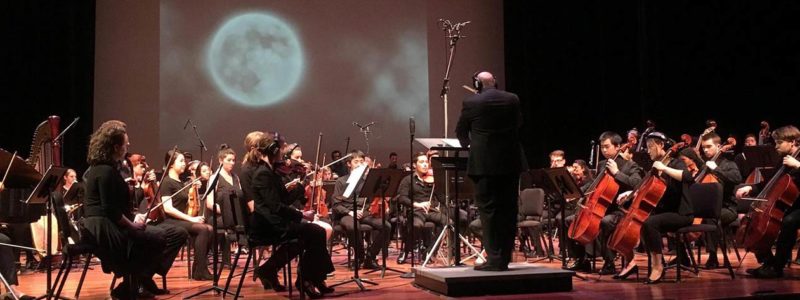
Film & Media Music Composition
My current masters studies with The Australian Institute of Music in Australia and The University of Chichester in the UK have been giving me insights into the following areas which I am able to tutor my students in should they be interested. I have a background with a major in composition so am fully versed in all styles of composition, arranging, and orchestration, and my current studies are tailoring these skills towards the film and media markets.
Music for Media
- The function of media music, its historical context, and how music supports storytelling and dramatic narrative.
- Scoring drama by understanding the intentions of the director and the interplay of the script, performance, and score.
- Identifying situations where music is required to provide support to the visual.
- Plotting the dramatic and musical arc of a scene.
- Spotting and scoring a film, including transitions and overlaps.
- Creating a music summary & concept for the score.
- Compositional devices in dramatic scoring including themes, motifs, and cues such as: drama (slow or sad), comedy, moderate intensity action (sneaking around for e.g. perhaps using ostinato, lyrical heroism using a lyrical grandeur melody, action heroes and villains and their themes, action adventure themes, long term form such as recurring action adventure themes, the use of theme and variation, recurring hymn themes, and recurring moderate-action themes. Additional cues such as slow suspense, awe, intense action, action chase, and intense horror.
- Preparing templates for repeatedly required compositional devices (in Logic for e.g.).
- Thematic development and manipulation.
- Scoring under dialogue or narration – dialogue and music as counterpoint.
- Writing in styles commonly requested by clients in the marketplace with research into these styles by finding examples and drawing conclusions about the fundamental elements of each style.
Scoring for the Screen
- Composing orchestral scores to picture including the technical aspects such as timecode, hit-points, two-pops, and stems.
- Creating, synchronising, and delivering a musical score to a professional standard using the current technology available to screen composers as well as developing the technical, collaborate, and creative skills to record a score with a live orchestra.
- Creating score templates for various projects to speed up delivery.
- Scoring for orchestra, and expanding with choir, ethnic instruments, and loops, etc.
- Orchestral foreground, middle ground, and background.
- Orchestral mixing.
- Composing orchestral themes and cues such as: sustained string cues, mystery and magic cues, theme cues, comedy, and action cues.
Digital Music
- Develop production skills using Logic, Native Instruments, and other recommended sampling software to be recommended by supervisor, in particular orchestral samples.
- Develop synthesiser manipulation and sound design skills.
- Electronic music studies: groove creation and manipulation (drum and bass), dub, trance, lead lines, etc.
- Mixing and mastering.
Media Music Business
- Writing to a brief – understanding how to interpret a clients requirements how best to respond musically to a brief.
- Overview of the music for media business to develop practical business skills in finding and promoting work.
- Showreel, website, film music supervisor feeds, libraries, contacts. E.g. Writing for Film Music Job Wire.
Would you like to know more? Click here for enquiries about learning to compose music for film, television, and more!